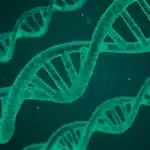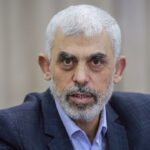Albert Claude (24 August 1899 – 22 May 1997) was a Belgian-American cell biologist and medical doctor. In 1974, he was jointly awarded the Nobel Prize in Physiology or Medicine.
Life and career
He was born on 24 August 1899, in Longlier. He pursued higher education at the University of Liège, where he studied medicine and received his medical degree in 1928. It was during this time that he began to develop a keen interest in cellular structure and the intricate machinery within cells.
In the 1930s, he joined the Rockefeller Institute for Medical Research (now Rockefeller University) in New York City.
One of Albert Claude’s most significant contributions to cell biology was his development of cell fractionation—a groundbreaking technique that allowed scientists to break down cells and separate their components for detailed analysis. By subjecting cells to a series of carefully controlled processes, Claude was able to isolate and study different organelles within cells, providing unprecedented insights into their structure and function.
Through cell fractionation, Claude discovered and characterized essential cellular structures, including mitochondria, endoplasmic reticulum, and Golgi apparatus. These groundbreaking findings paved the way for a deeper understanding of how cells function and communicate with one another, laying the foundation for further advancements in the field.
In addition to his innovative work in cell fractionation, Albert Claude made significant strides in the field of electron microscopy—a technique that utilizes beams of electrons to visualize structures at a much higher resolution than traditional light microscopy. By harnessing the power of electron microscopy, Claude was able to capture detailed images of cells and their organelles, providing scientists with a wealth of visual data that transformed our understanding of cellular architecture. He died on 22 May 1997, in Brussels, Belgium.
Award and Legacy
In 1974, he was jointly awarded the Nobel Prize in Physiology or Medicine, along with George E. Palade and Christian de Duve, for their groundbreaking contributions to the field.
His legacy extends far beyond his scientific achievements. His groundbreaking work laid the foundation for subsequent research and inspired generations of scientists to delve deeper into the mysteries of cell biology. Today, his discoveries continue to shape our understanding of cellular processes and have paved the way for advancements in areas such as cancer research, drug development, and regenerative medicine.
Observer Voice is the one stop site for National, International news, Editor’s Choice, Art/culture contents, Quotes and much more. We also cover historical contents. Historical contents includes World History, Indian History, and what happened today. The website also covers Entertainment across the India and World.










